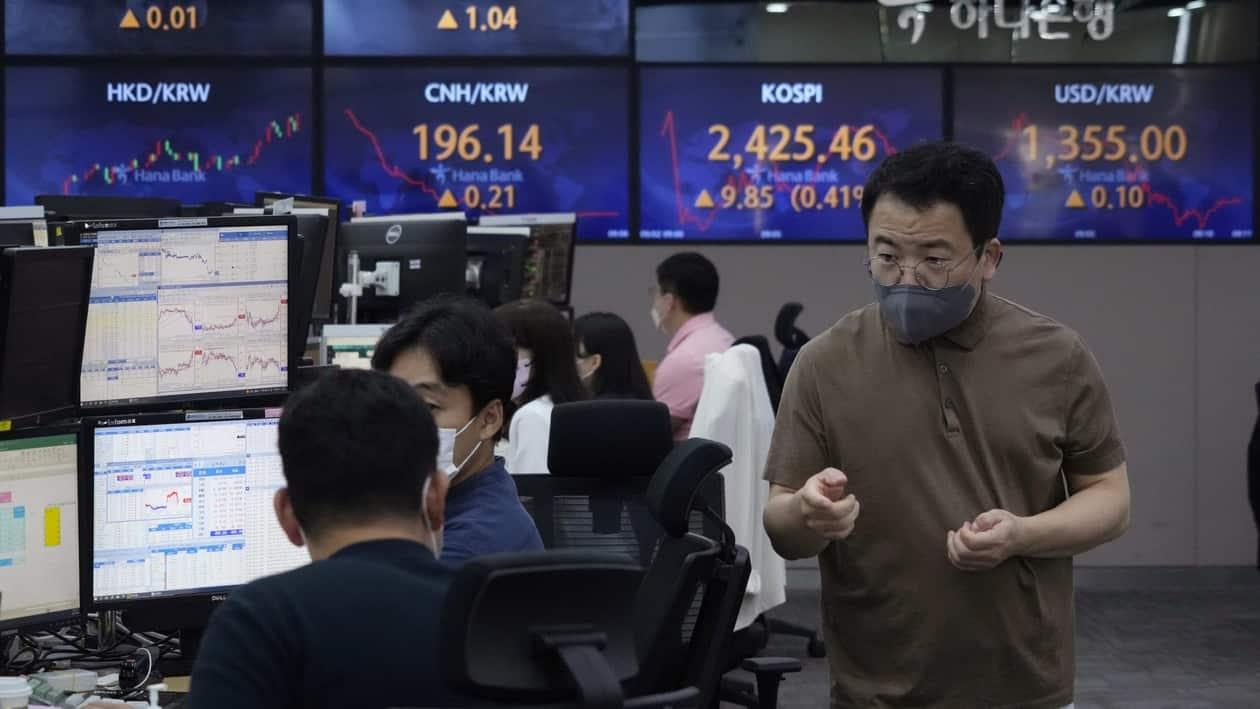(Bloomberg) -- As global equities struggle after the Federal Reserve’s latest hawkish rhetoric, Southeast Asia’s growth outlook is making the region an investor favorite.
Man Group Plc, BNP Paribas SA and Credit Suisse Group AG are among those touting the region’s resilience after commentary at Jackson Hole reignited a worldwide selloff over the past week. The benchmark MSCI Asean Index has fared much better than the broader MSCI Asia Pacific Index and is set to outperform a gauge of global stocks for a third straight quarter.
The growing bullish chorus points to a reopening of Southeast Asia that’s bringing back a swarm of tourists, as well as booming domestic demand that’s helping shield it from a global slump. And with the tailwind from commodity exports, the region’s earnings outlook seems more promising versus most markets squeezed by slowing consumption and rising costs.
“We have a lot of pent-up demand here,” said Joshua Crabb, head of Asia Pacific equities at Robeco Hong Kong Ltd. “Foreign direct investment is happening, opening-up is continuing to happen and the long-term structural story is quite positive. The market has been incredibly resilient in the face of what would usually result in a dramatic selloff. That to me, is a real vote of confidence.”
Most of the region’s biggest economies are expected to grow at least 5% this year, according to estimates compiled by Bloomberg, with the scrapping of pandemic-era restrictions offering a key boost.
Malaysia more than doubled its annual target for tourists following an uptick in recent months, while Thailand expects to reap in $11 billion from a surge in foreign visitors in the second half.
Low on Tech, High on Banks
The revival stands in stark contrast to China, where a lockdown in megacity Chengdu has cast even more gloom over its economy and North Asian markets that rely on exports.
“We are remaining focused on India and Southeast Asia markets,” Manishi Raychaudhuri, head of Asia Pacific equity research for BNP Paribas, said on Bloomberg TV. “These are not only growing in terms of economic revival post-Covid, but also strongly growing in terms of the earnings estimates.”
Such views are echoed by Credit Suisse strategists, who in a note last week said they remain overweight on Asean, with their favorite market being Thailand. South Korea and Taiwan are their biggest underweights.
The composition of Southeast Asia’s equity benchmarks -- low tech weighting and relatively high ratio of bank shares -- is also favorable in a rising global interest-rate environment.
To be sure, the region can’t be immune to global risks arising from a supercharged dollar hurting corporate profits and the Fed’s tightening driving away capital from emerging markets.
Many market watchers say, though, that this time will be different from the foreign-fund exodus seen in 2013 given the economies’ stronger fundamentals. Global funds poured a net $2.4 billion into the region excluding Singapore quarter-to-date, with Thailand accounting for a chunk, Bloomberg-compiled data showed.
And while most global central banks have been forced to tighten policy as they confront sizzling inflation partly driven by years of pandemic stimulus, the problem has been less acute in Southeast Asia. Indonesia, whose stock market is among the world’s best performers this year, only started to raise rates in August.
Forward earnings estimates for MSCI’s Southeast Asia gauge have gained nearly 4% since the start of the quarter, compared to a 1.5% decline for the world index.
The region’s governments “haven’t used their fiscal largess, they haven’t used monetary largess, real rates are still reasonable compared with a lot of other places,” said Crabb at Robeco. “We have seen earnings coming out of places like Indonesia have been very resilient.”
